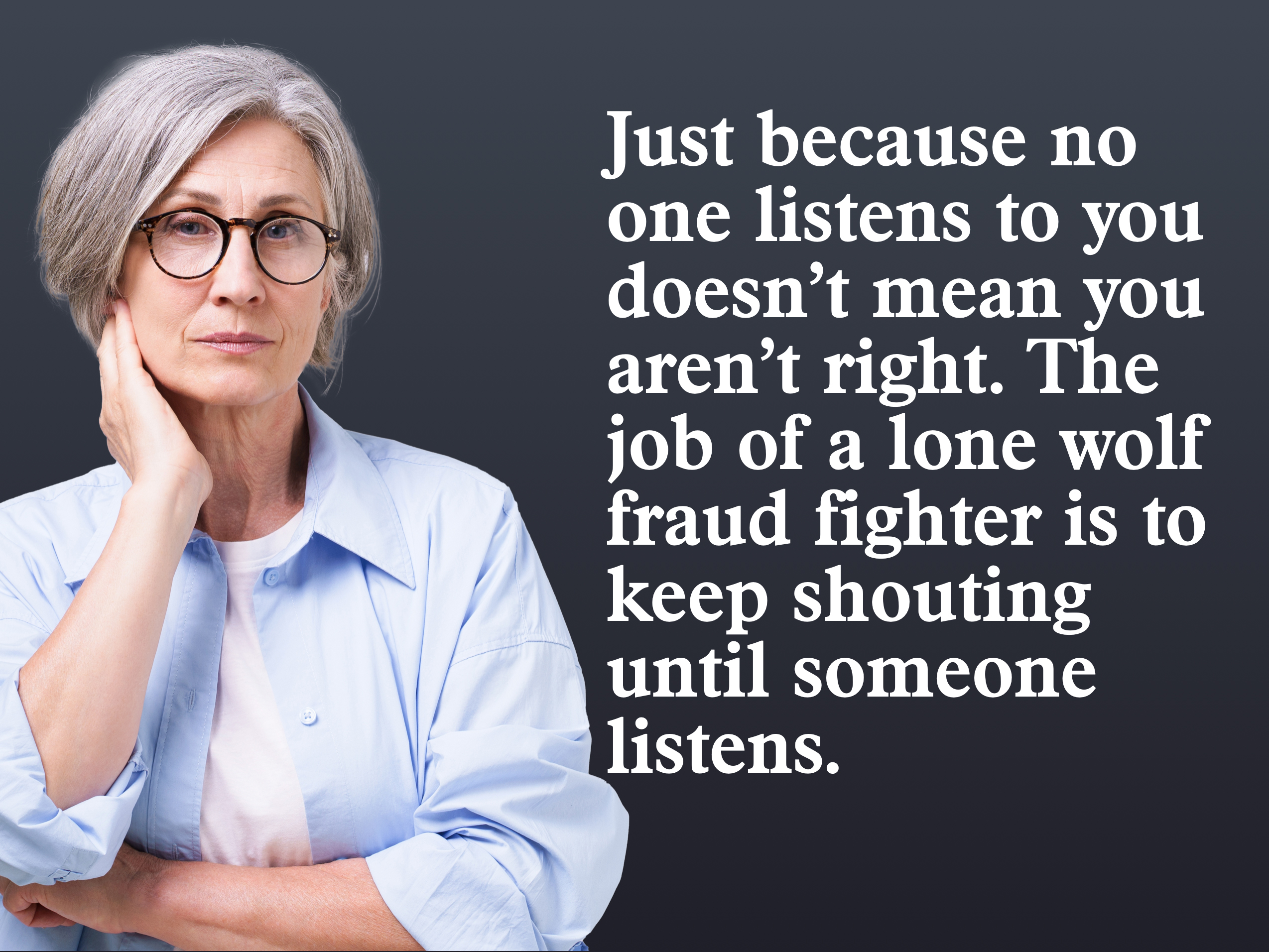Janice is the fraud manager, but she doesn’t manage anyone. She manages fraud. That’s what her job description says.
Day in and day out, she fights fraud. She’s all alone. There is no team.
She’s a department of one.
It’s just her and a growing work queue: calls from victims, referrals and questions from other departments, and a SAR to file here and there.
She loves her job. She loves fighting fraud. But she has a nagging feeling in the back of her mind. “Does this company take fraud seriously?”
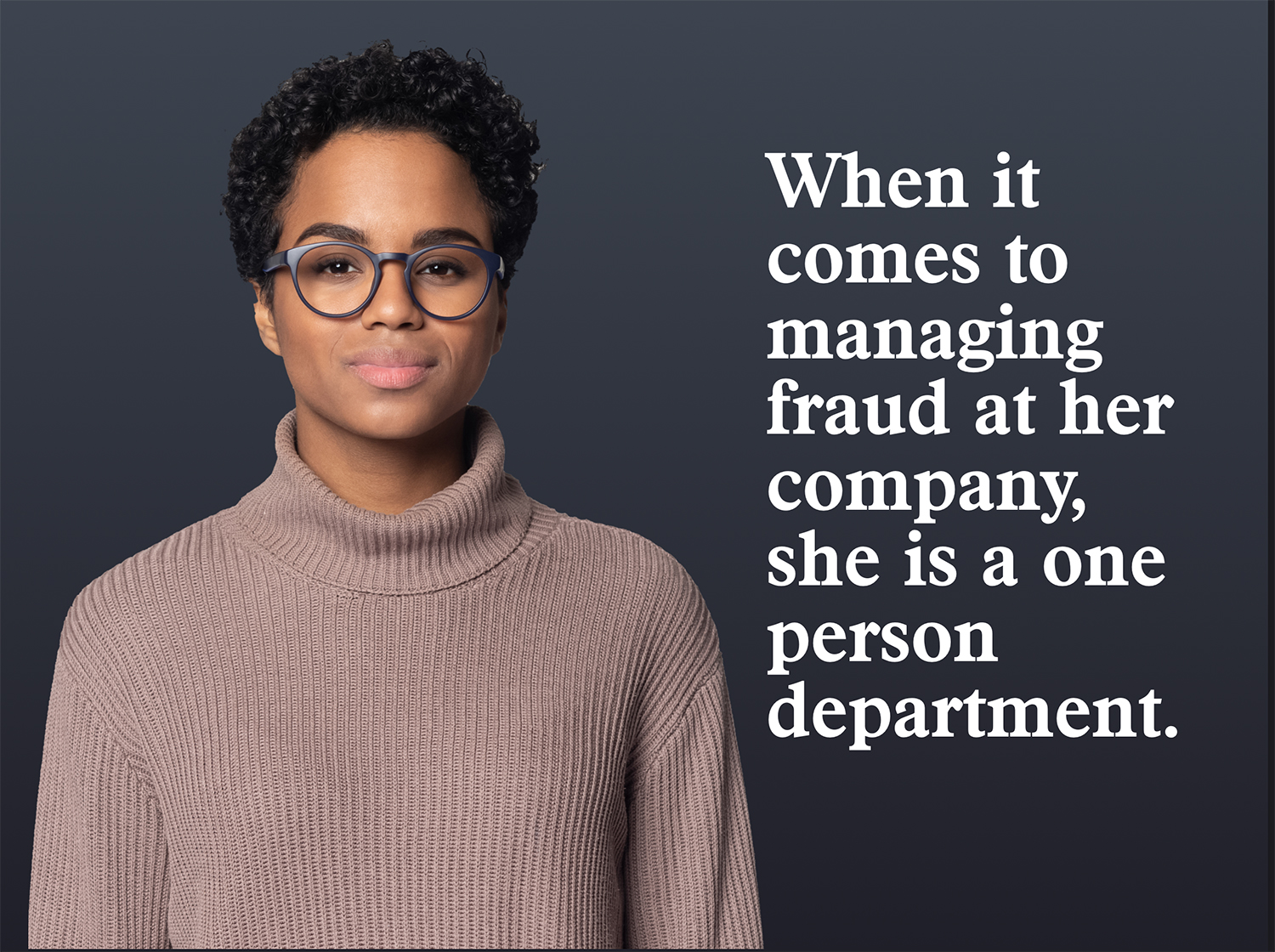
There Are Thousands Of Fraud Fighters Like Janice
Janice may feel alone. But she is not. Hundreds if not thousands of fraud fighters just like her are toiling away, feeling like it’s them against the world.
Maybe they are not a department of one like her, but they might as well be. They find every conversation and action they take to get their organizations to do the right thing a battle.
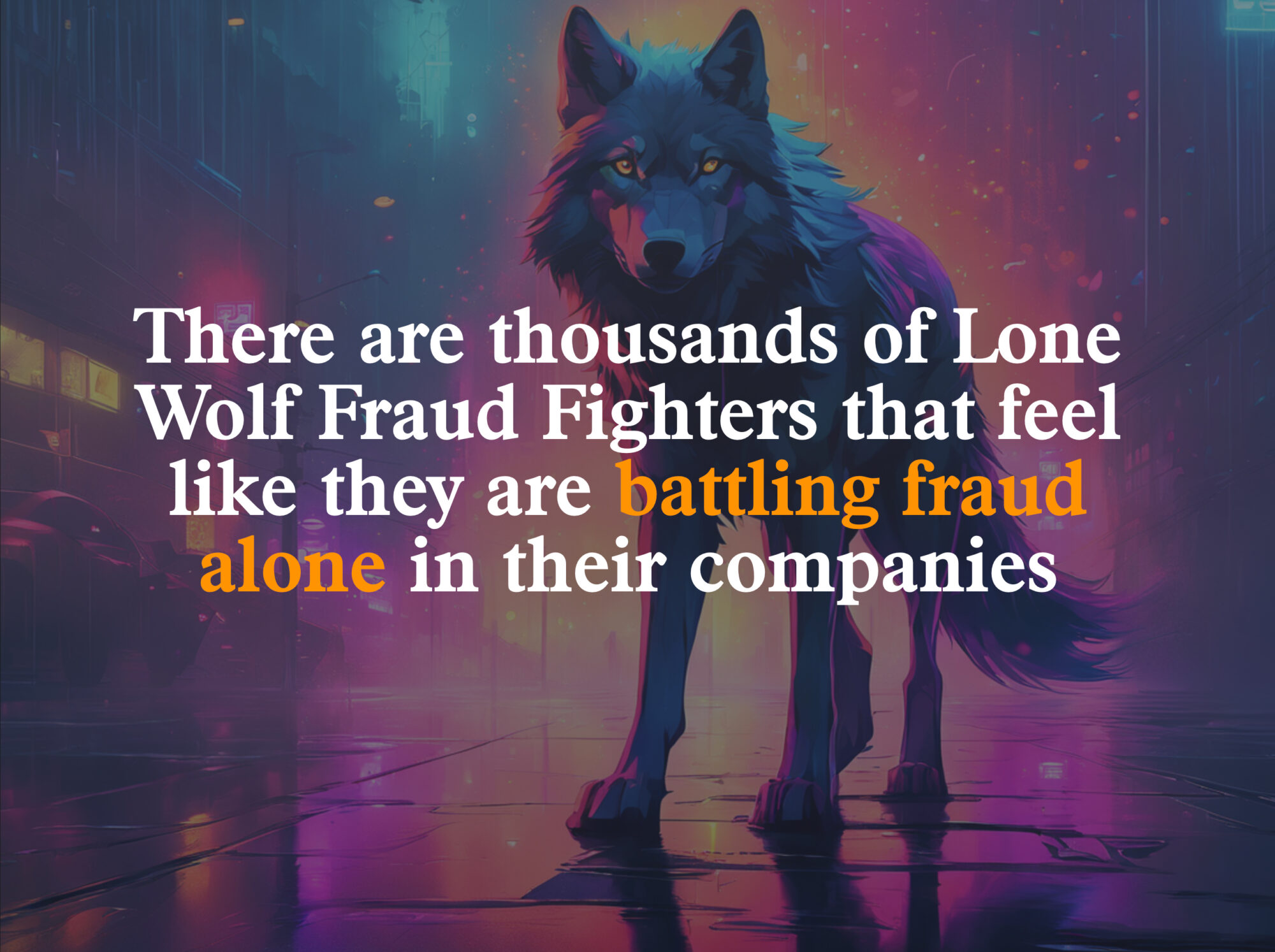
They are the lone wolves of fraud-fighting. Their stories are often the same. I know this because I have talked to many of them.
There is one story I hear happen all too often, and it’s this one – The Lone Wolf Fraud Fighter That Got Abandoned.
It goes like this ?
#1 – Someone Believed In You At The Start
Every bank, merchant and lender, reaches a point when they realize they need a fraud specialist. Usually, one executive is passionate about bringing that role into the organizational structure. They are the champion of the idea.
So they look around and find that one person in the organization (usually someone deep in operations) who has a passion for fraud and is a natural fit for the part. So they promote you. They give you a chance. They believe in you and are willing to stake their reputation on it.
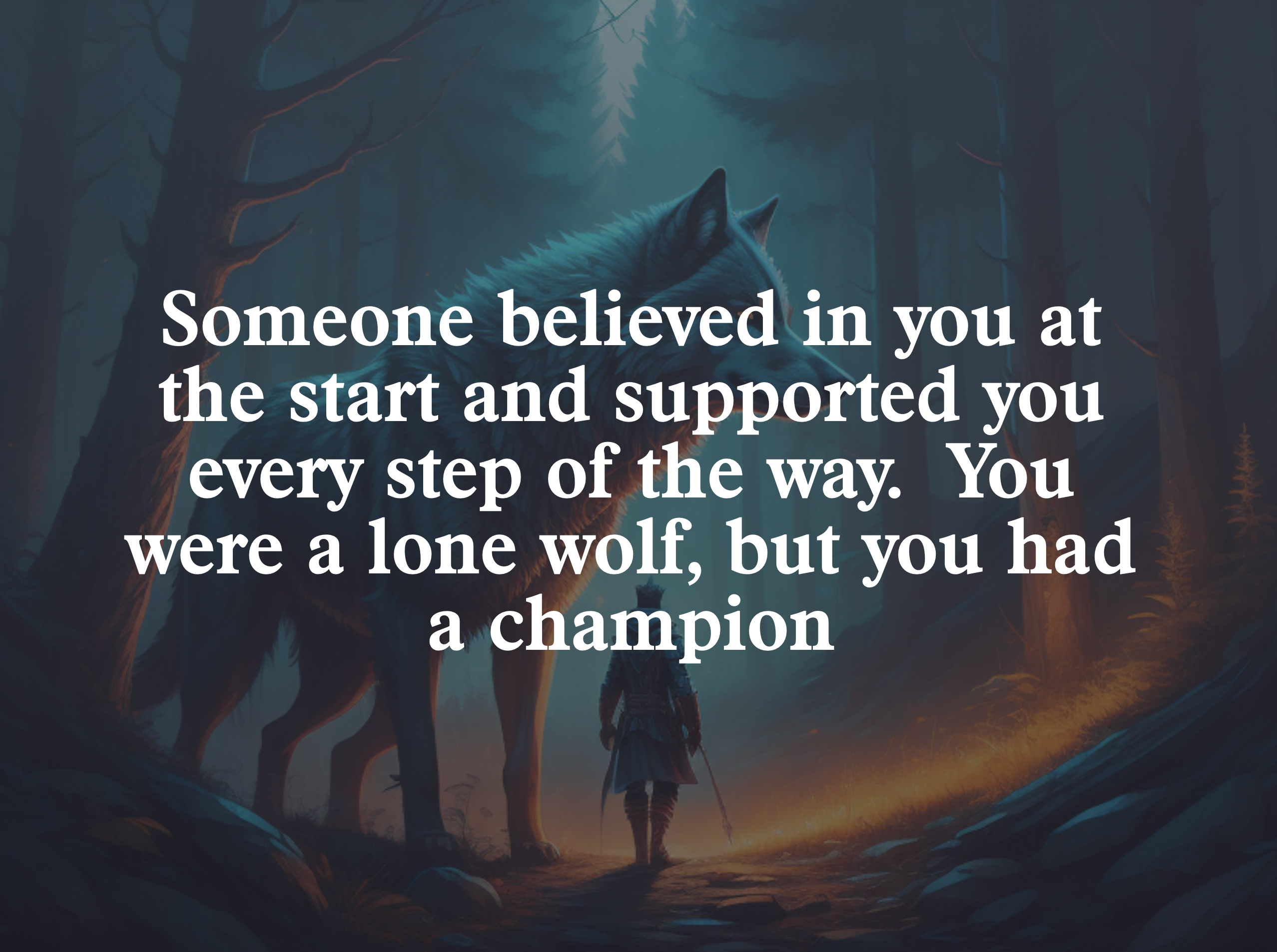
Things could not be better for you. Your job is exciting. You are supported. You have the dream job. How could it possibly get any better?
#2 – You Become A Rising Fraud Fighting Star
With your executive sponsor’s support and guidance, you quickly become the rising star at the company. In fact, you become the go-to resource for absolutely everything. Your phone is ringing off the hook; you are barraged with emails from employees, customers, all needing your expertise and guidance.
You do the fraud training. You write the fraud policies. You handle all the scam, fraud, and money laundering queues. You file the SARS. You manage all the fraud reporting for the company. It might all be in spreadsheets, but hey, it’s better than nothing, and at least the company is tracking fraud now.
You work tirelessly and become the expert at all things. You don’t mind. You love your job.
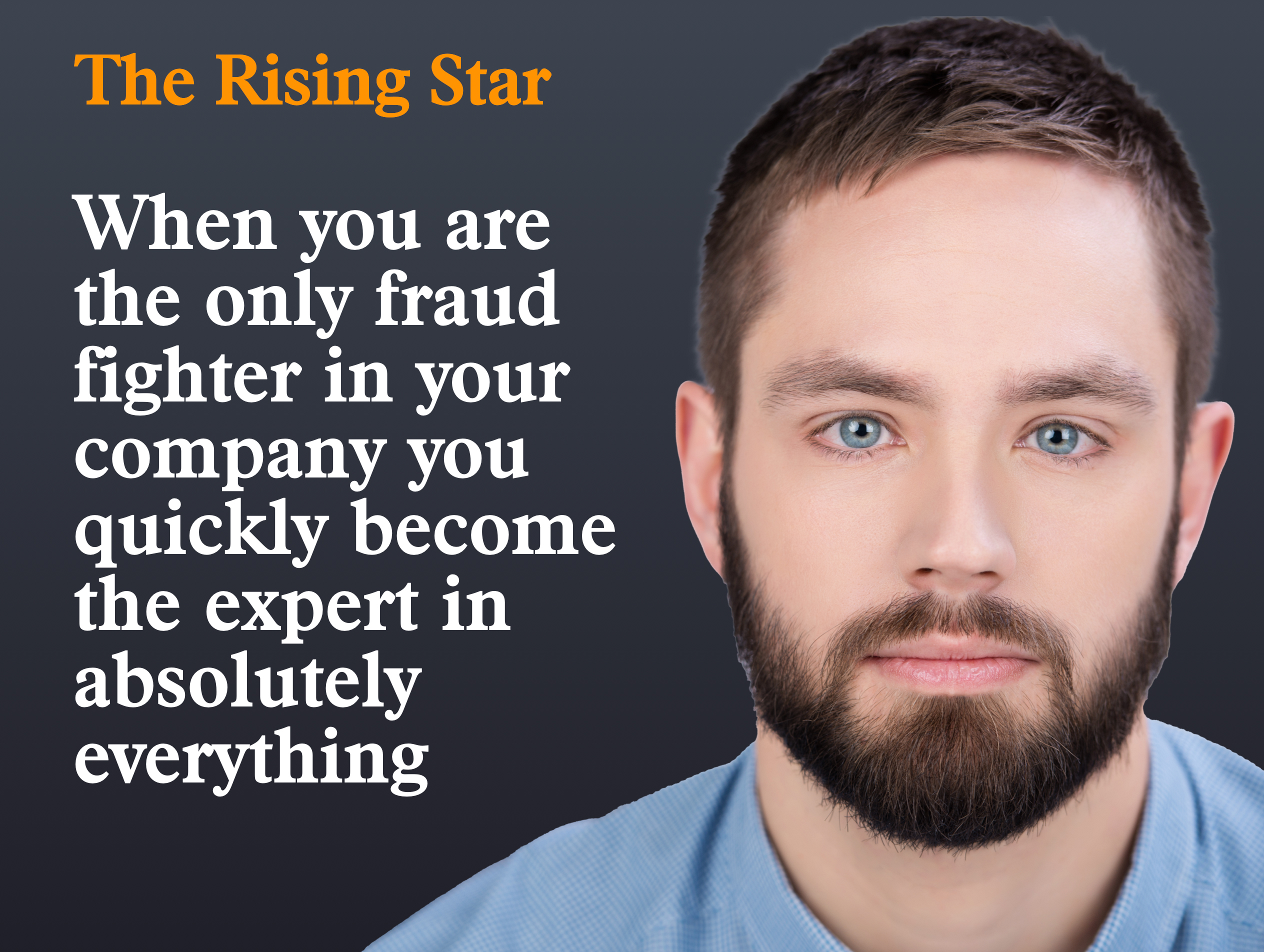
#3 – The Environment Suddenly Changes
All good things eventually end. And that’s what happens here. Your sponsor leaves the company. The one person who championed you on the executive team is gone.
Like a sailboat in a storm, you are flailing in the wind.
Your world is about to change. Without your sponsor, it will be up to you alone to convince the company to do the right thing. To care about fraud risk.
Things change. It happens slowly at first, but you notice that your work is increasingly marginalized. You start feeling a little less important to the organization every day.
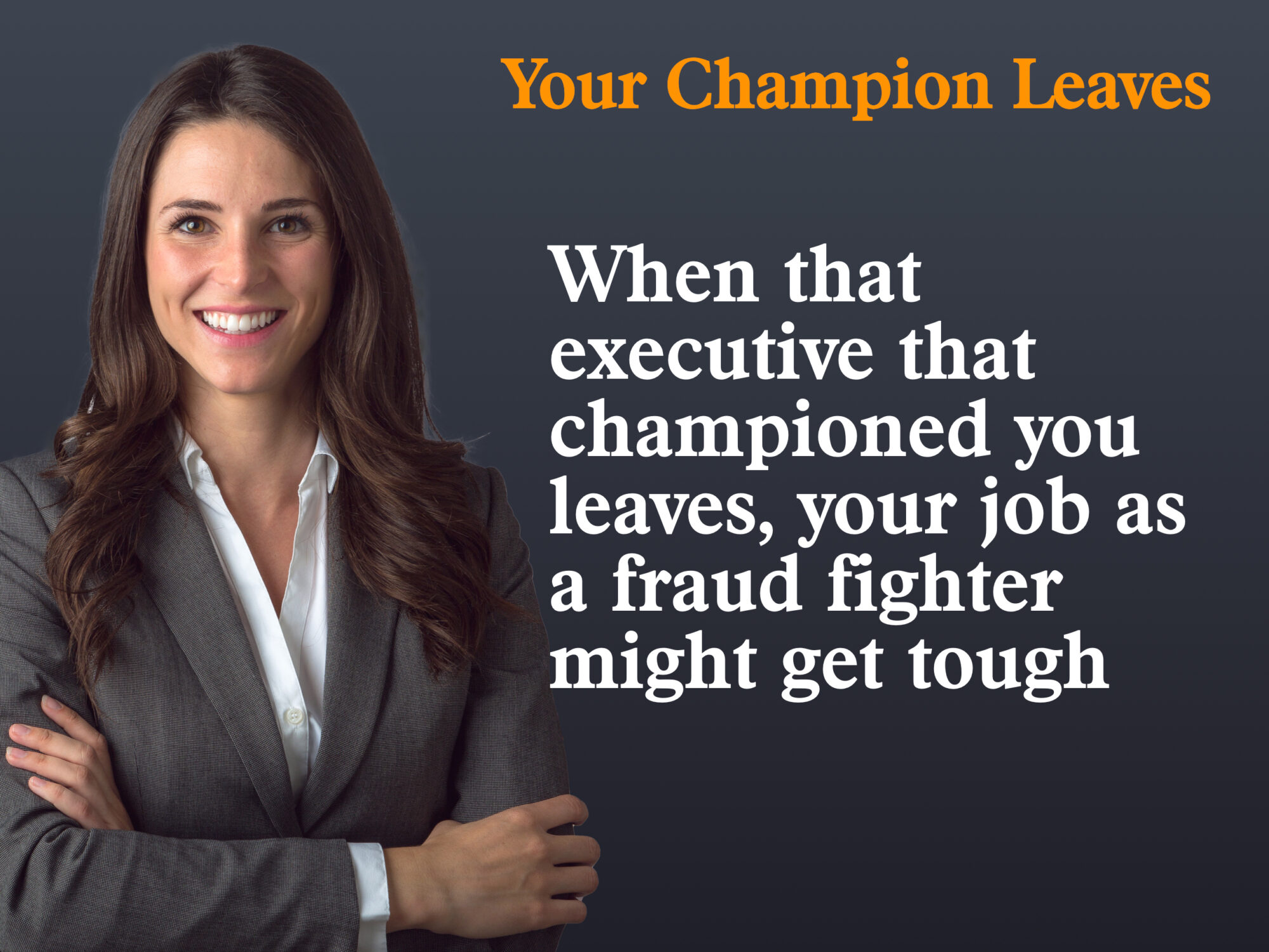
With your executive sponsor gone, your high-flying career is about to turn for the worse. Fraud is no longer strategic; it’s become a “niche” operational job many will question is even needed.
#4 – You Can’t Get Investment In Anything, Does Nobody Care?
When you initially took the role, the company seemed to have grand plans and a vision for managing fraud.
But that doesn’t seem to be the case any longer. There is no budget for fraud technology, fraud reporting, or more staff. Fraud is just a niche. It’s not strategic.
You start to feel that if you disappeared, would anyone notice?
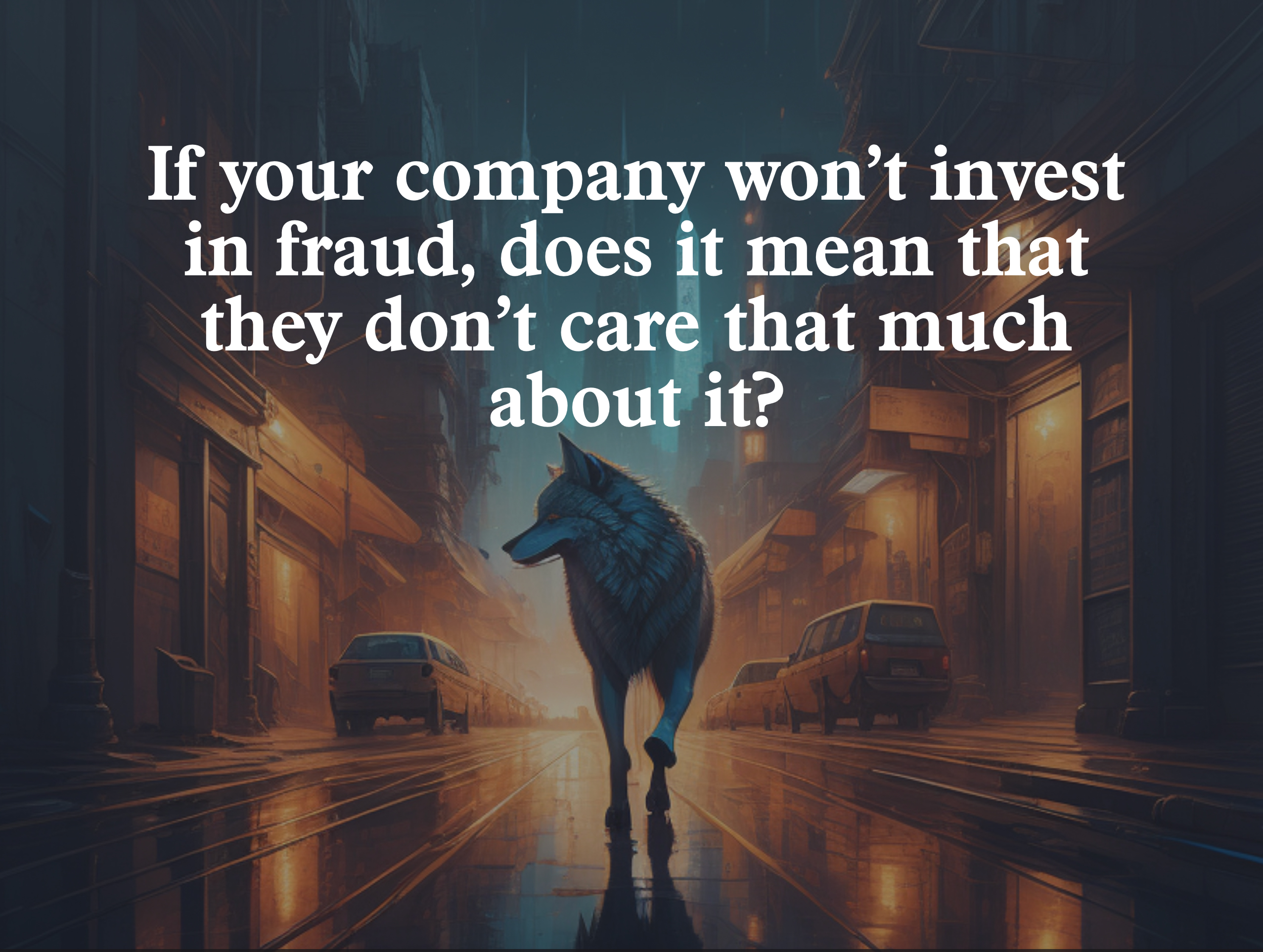
#5 – You Are Shuffled All Over The Organization
It’s about this time when things get bad. You are shuffled throughout the organization over the next 12 to 18 months. No one seems to know where to put you. One month, you’re in customer service; the next month you’re in underwriting, and the following month your in legal.
You are bounced around like a hot potato.
In every case, you report to someone who doesn’t care much about fraud. Most of your managers don’t have a clue about it and don’t have the desire to learn. And they also don’t want it. Because it’s a pain to listen to you, tell them repeatedly that the organization needs to get serious.
You are demoralized.
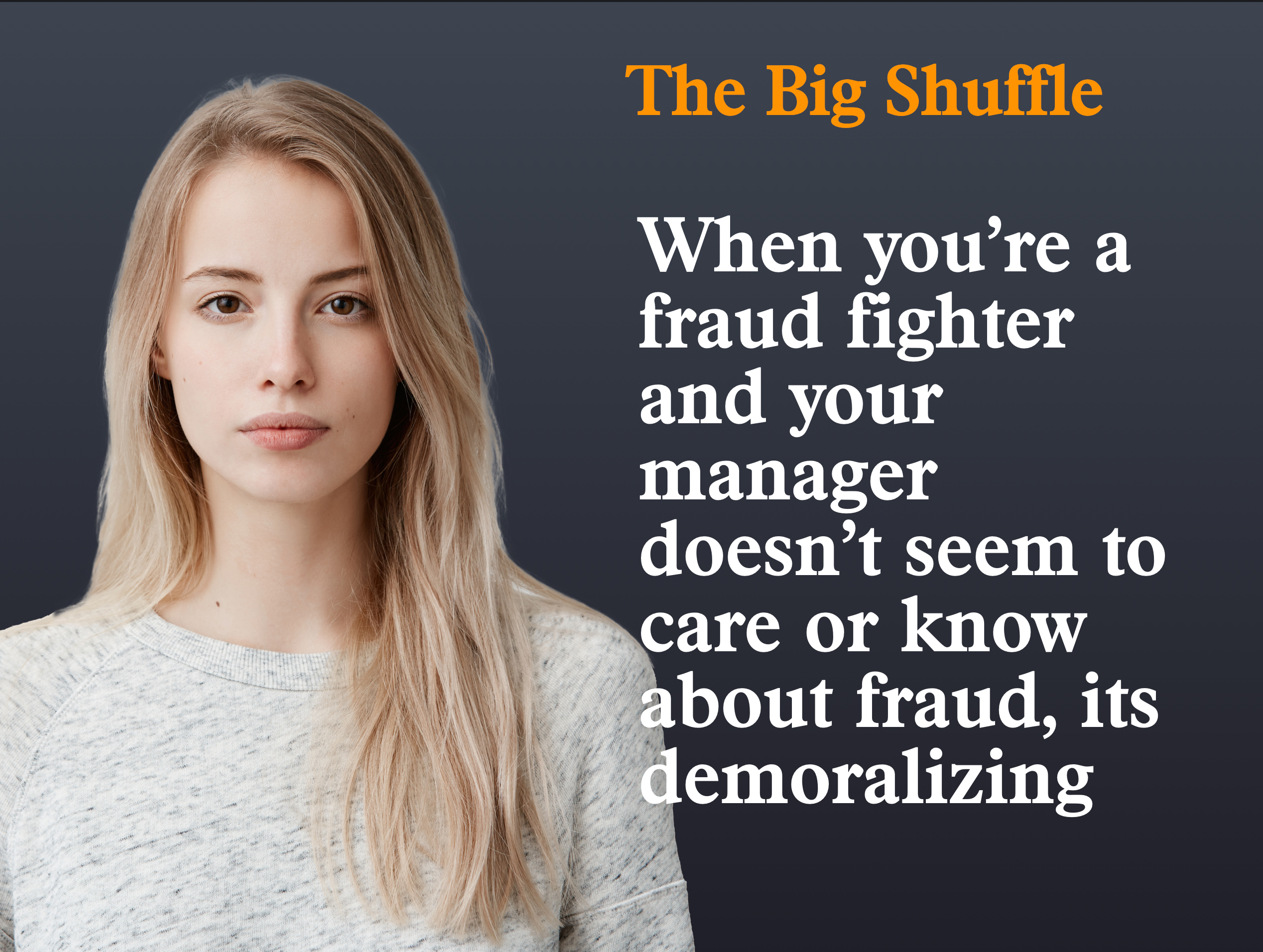
#6 – You Leave For A Better Opportunity With A Company That Cares
You reach a point where enough is enough. You’re ready for a change. You long for the feeling you had of being supported when you first took the job as the lone wolf fraud fighter.
Sometimes, you can’t change a company. They have no cultural desire to stop fraud. It’s all about growth and money at all costs. So you decide to leave.

So you start to look and are amazed at how many opportunities you find. There are organizations and people out there just like you who care about fraud and will support you.
So you take the leap, leaving the safety net of the company you know for the company and the job that you hope you will love.
#7 – The Companies Fraud Losses SkyRocket After You Leave
Well, this is the chapter of the story that you could call “I told you so.”
You see, when you are a lone wolf fraud fighter in a company, you are shouldering everything on your back. The company’s fraud controls are fragile and unstable. They have never been embedded in the culture. They never embraced it.
So when you leave, they fall apart. Their fraud losses start to rise. A little at first, and then all of a sudden a lot. Within a year, their fraud losses have skyrocketed.
Knowing that makes you feel a little good, know you counted. But it also makes you a little sad, knowing it never had a lasting impact.
Such is the life of a lone wolf fraud fighter.

Lone Wolf Fraud Fighters, You Are Not Alone
Lone wolf fraud fighters, you might feel alone, but you are not. Thousands of people in the industry are going through exactly what you are.
And that’s why there are so many communities that fraud fighters flock to to get support. If you feel that way, how about checking out some of these communities and podcasts that will make you feel part of something much bigger than yourself?
- AboutFraud (Aka Fraud Fight Club – 23,000 + Fraud Fighters)
- The House of Fraud. (Bringing the Fraud Fighting Community Together)
- Bad Fraud Advice (Inspirational and Informative Advice)
- Fraudology (The World’s Most Informative Fraud Podcast)
- The Brett Johnson Show (The Nitty Gritty On Fraud from Brett)
- The ACFE (Largest fraud organization in the world)
- The IAFCI (The original Fraud Fighters collab group)
- The Knoble (Fraud Fighters for Good Causes)
Remember this lone wolf fraud fighters ?Just because no one listens to you doesn’t mean you aren’t right. The job of a lone wolf fraud fighter is to keep shouting until someone listens.
